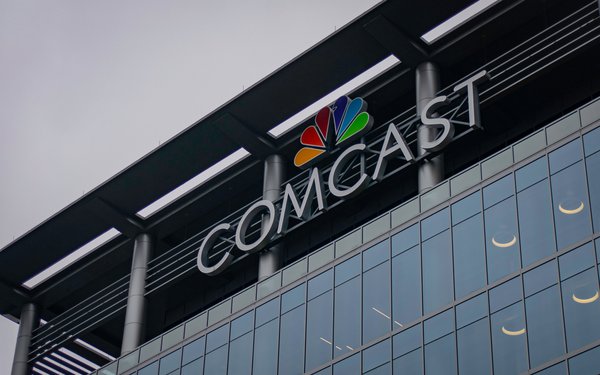Comcast Holds Off On Imposing Data Caps In 14 States
- by Wendy Davis @wendyndavis, February 19, 2021

Faced with criticism by lawmakers, Comcast says it will wait until 2022 before moving forward with plans to impose data caps on subscribers in 14 Northeast and mid-Atlantic states and the District of Columbia.
“We recognize that our data plan was new for our customers in the Northeast, and while only a very small percentage of customers need additional data, we are providing them with more time to become familiar with the new plan,” the company stated Thursday.
The move marks a reversal for the broadband provider, which said in November that it planned to impose caps of 1.2 Terabytes of data per month throughout the country.
Consumers who exceeded the cap would have been charged an extra $10 per 50 Gigabytes, unless they paid extra for an unlimited data plan.
Comcast currently deploys caps across around two-thirds of its footprint, but not in the Northeast and mid-Atlantic -- where the broadband carrier faces competition from Verizon's Fios.
News of Comcast's plan quickly drew a backlash by elected officials.
In Massachusetts, state lawmakers introduced a bill that would prohibit wireline broadband providers from raising prices, imposing data caps or shutting off service to people who can't pay due to hardship caused by the COVID-19 pandemic.
On the federal level, Reps. Frank Pallone, Jr. (D-New Jersey), Mike Doyle (D-Pennsylvania) and Jerry McNerney (D-California) blasted Comcast's plan as an "egregious action."
"Households and small businesses across the country need high-speed, reliable broadband more than ever but are struggling to make ends meet," the lawmakers wrote.
Comcast says 5% of customers use more than 1.2 TB of data per month; those subscribers account for 20% of the network traffic.
Comcast first rolled out data caps in 2008, when the company set them at 250 GB per month. The broadband provider has since increased the caps several times, most recently in July, from 1 TB to 1.2 TB per month.
Consumer advocacy groups have long objected to data caps, arguing that they are arbitrary and amount to a price hike.
Advocates also say cable providers like Comcast have an incentive to price broadband at rates that will discourage people from replacing their cable video packages with streaming services.
On Friday, Massachusetts Attorney General Maura Healey cheered news of Comcast's decision to delay.
"Great news for Comcast customers," she tweeted. "Enforcing a new fee at a time when remote education and work is necessary to keep residents safe during the COVID-19 pandemic was ill-conceived and poorly timed."


